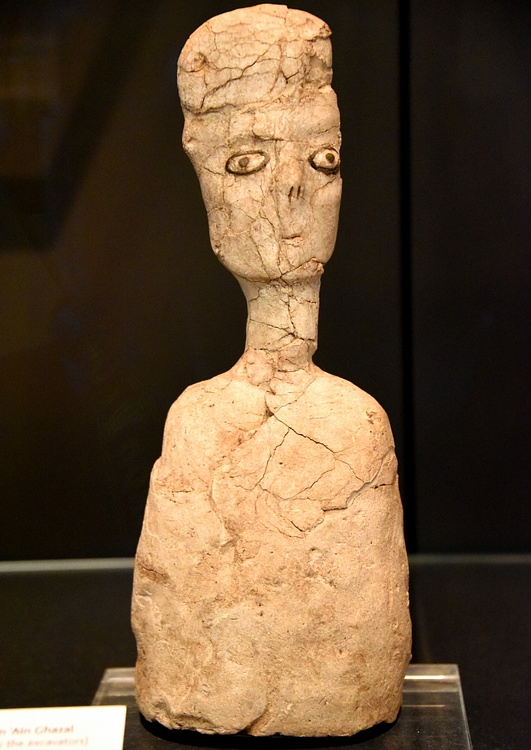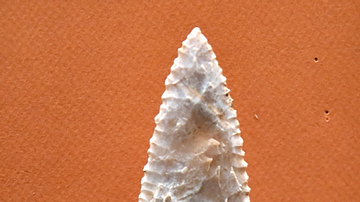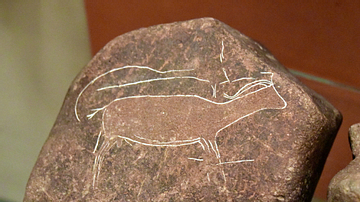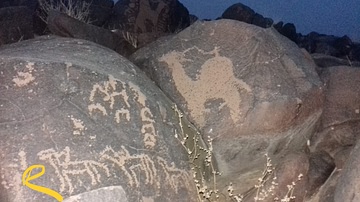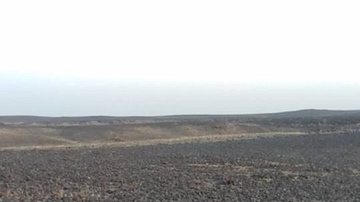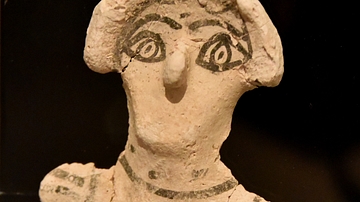Illustration
This extraordinary statue is one of the earliest large-scale representations of the human form. It was found as part of a cache of up to 25 statues buried in a pit under the floor of an abandoned house. All of these statues have naturalistically rendered heads and faces. Some figures are large and and have realistically represented bodies while the smaller ones are more schematized. Many are decorated with paint or shallow incisions to indicate hair, items of clothing, and to highlight facial features. From Ain Al-Ghazal, modern-day Jordan. Pre-Pottery Neolithic B Period, 7200 BCE. Lime plaster over armatures of reeds and twine. Lent by the Department of Antiquities of Jordan. It is currently housed in the British Museum, London.
Cite This Work
APA Style
Amin, O. S. M. (2016, April 11). Lime Plaster Statue from Ain Al-Ghazal. World History Encyclopedia. Retrieved from https://www.worldhistory.org/image/4872/lime-plaster-statue-from-ain-al-ghazal/
Chicago Style
Amin, Osama Shukir Muhammed. "Lime Plaster Statue from Ain Al-Ghazal." World History Encyclopedia. Last modified April 11, 2016. https://www.worldhistory.org/image/4872/lime-plaster-statue-from-ain-al-ghazal/.
MLA Style
Amin, Osama Shukir Muhammed. "Lime Plaster Statue from Ain Al-Ghazal." World History Encyclopedia. World History Encyclopedia, 11 Apr 2016. Web. 20 Apr 2024.
